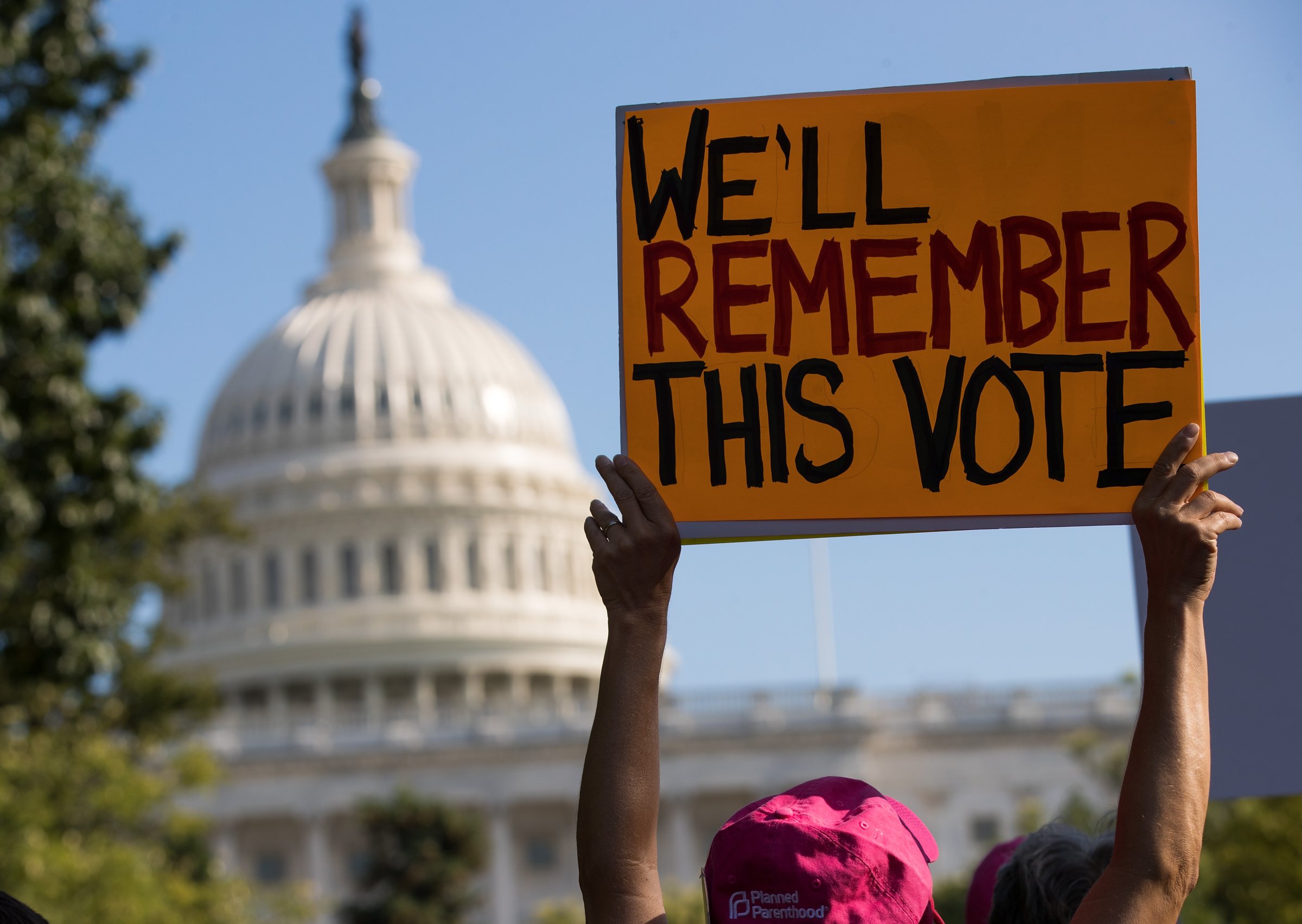
If anything was perceived as inevitable about the health care fight in the wake of the 2016 election, it was that Obamacare was destined to be repealed. After a seven-year crusade against the law with near-unanimous backing from conservative candidates and members of Congress, it was hard to imagine any scenario other than them voting for the umpteenth time to rip up the Affordable Care Act. And this time, now with control of two-thirds of the federal government, a President would sign it.
Among those who have been active in progressive politics over the past decade, many of whom have worked tirelessly in support of Obamacare, the prospect of repeal was devastating. We’ve seen the human impact of this law — somewhere along the line, we’d all met a mother who had faced bankruptcy or a sick kid who’d hit their lifetime cap before their third birthday or a cancer survivor who had been uninsurable. All of them were given a chance at life again.
No CBO score could’ve been as impactful as those faces and stories embedded within us. And suddenly, after the election, we had to reckon with the fact that the system they depended on was doomed.
But then something incredible started happening. People refused to accept that reality. And it wasn’t just Obama people or Hillary people or Bernie people. The entire progressive coalition — one that has too often struggled to unify — came together to support a groundswell of grassroots voices.
Around the country, activists and average citizens — some who had never been engaged in politics before and some who had been in this fight for years — stepped up. They flooded phone lines on Capitol Hill with hundreds of thousands of calls. They organized upwards of 10,000 rallies and forums and letter-to-the-editor writing parties. They poured into town halls to tell their stories and demand answers from their members of Congress.
In the House, what should’ve been a breezy victory for Majority Leader Paul Ryan turned into an uphill battle. Representatives were overwhelmed by opposition to their efforts. Their February recess was dominated by outrage from constituents back home. Nothing came easy, and nobody will forget about the votes of the 217 members who narrowly passed their cruel bill.
Then, the grassroots movement doubled down. People went to incredible lengths to ensure Senators internalized exactly how much families had at stake. Their tenacity was inspiring and their impact can’t be overstated. Ordinary Americans flew across the country and embarked on eight-hour road trips just to tell their stories to key senators. Hundreds of disability advocates held hours-long sit-ins at Senate offices across the country.
One person after the next has fought back tears to tell their stories — and their Senators listened. Lisa Murkowski listened. Susan Collins listened. John McCain listened. The entire Democratic caucus listened, and amplified their voices.
Last night, after repeal failed once again, Mitch McConnell said: “It’s time to move on.” Those are words many of us never expected to hear. It’s a remarkable testament to a movement led by millions of engaged citizens who stared down a seemingly unwinnable fight with steadfast determination and never stopped speaking out.
Needless to say, we’re not out of the woods yet — not even close. Some are already talking about how to revive repeal efforts. Moreover, this administration has made clear they’ll keep working to sabotage health care markets. So our work is far from finished — but this movement continues to defy the odds.
It’s easy to paint last night’s vote simply as a tale of John McCain’s stand — and he no doubt deserves great credit, alongside Murkowski and Collins — or as Mitch McConnell’s failure. But that’s far from the whole story.
The reality is this: Six months ago, Obamacare repeal was a foregone conclusion. The health care movement that the progressive grassroots fought for was all but defeated. And yet, here we are, still standing strong.
This is what can happen when a well-organized grassroots movement refuses to believe that the improbable can’t be accomplished. This fight is not over, and many more lie ahead, and we should face them with the same hopeful resolve we’ve seen over the last six months.
More Must-Reads from TIME
- How Donald Trump Won
- The Best Inventions of 2024
- Why Sleep Is the Key to Living Longer
- Robert Zemeckis Just Wants to Move You
- How to Break 8 Toxic Communication Habits
- Nicola Coughlan Bet on Herself—And Won
- Why Vinegar Is So Good for You
- Meet TIME's Newest Class of Next Generation Leaders
Contact us at letters@time.com